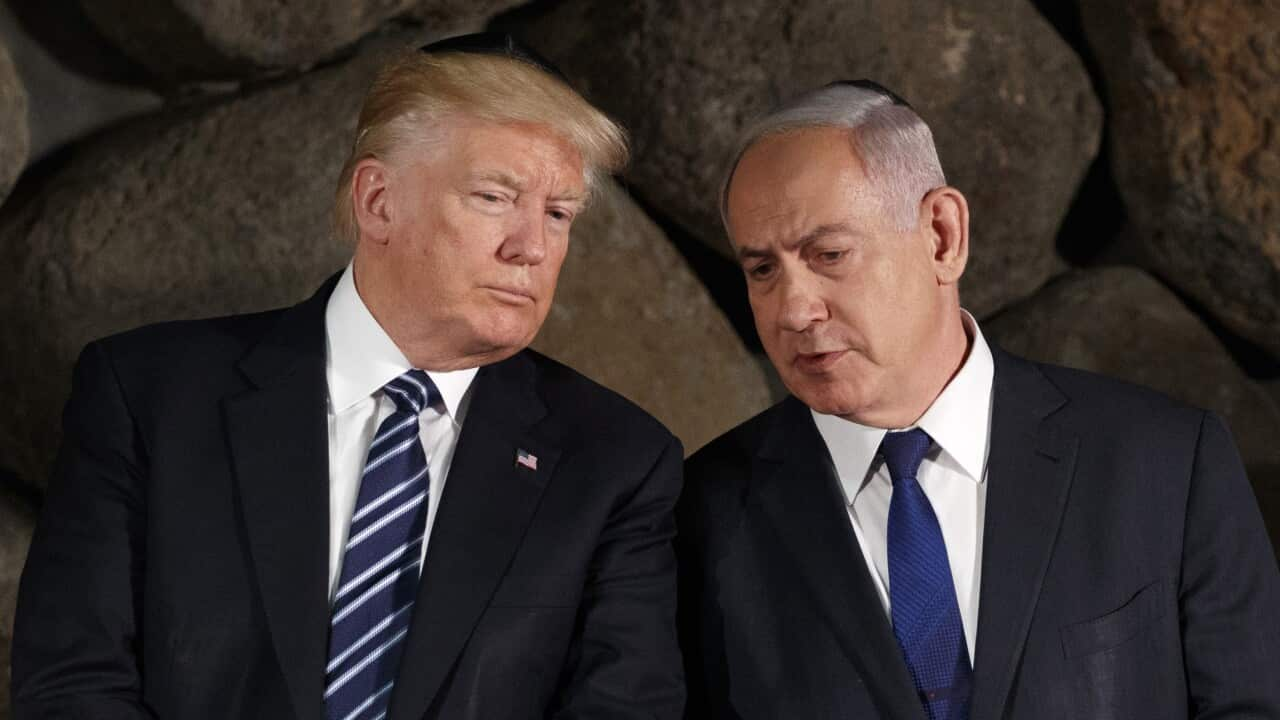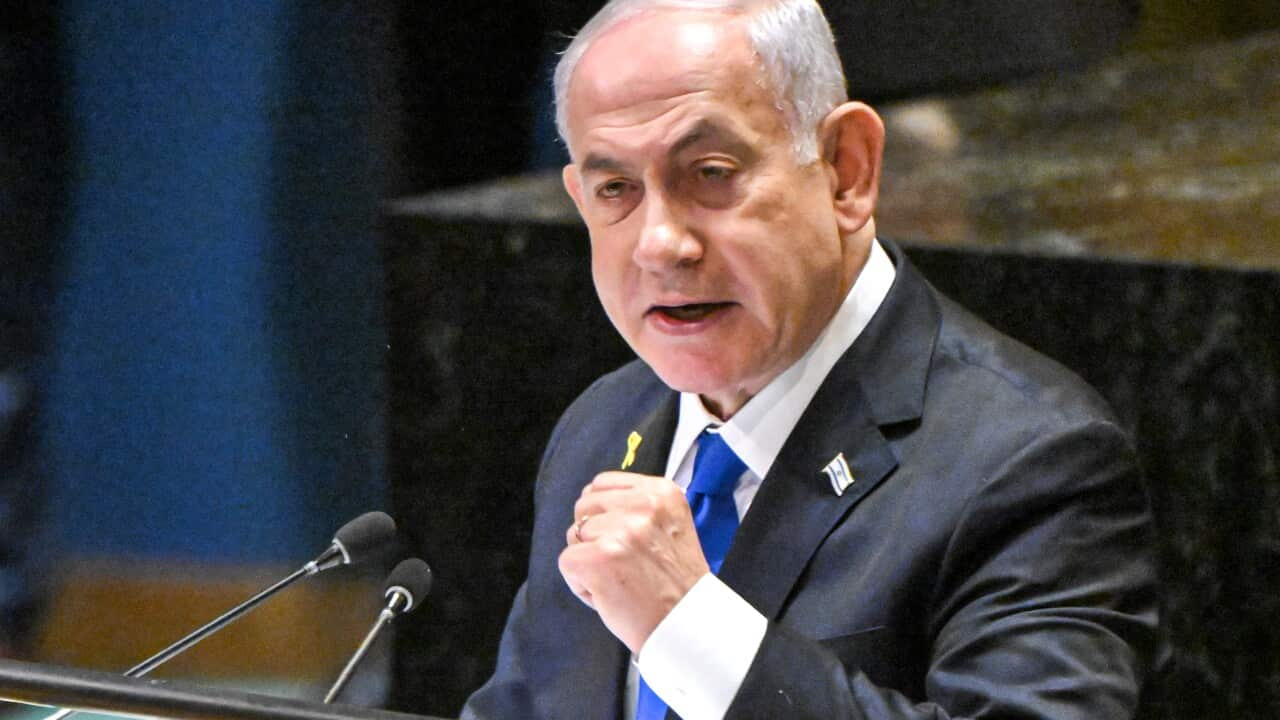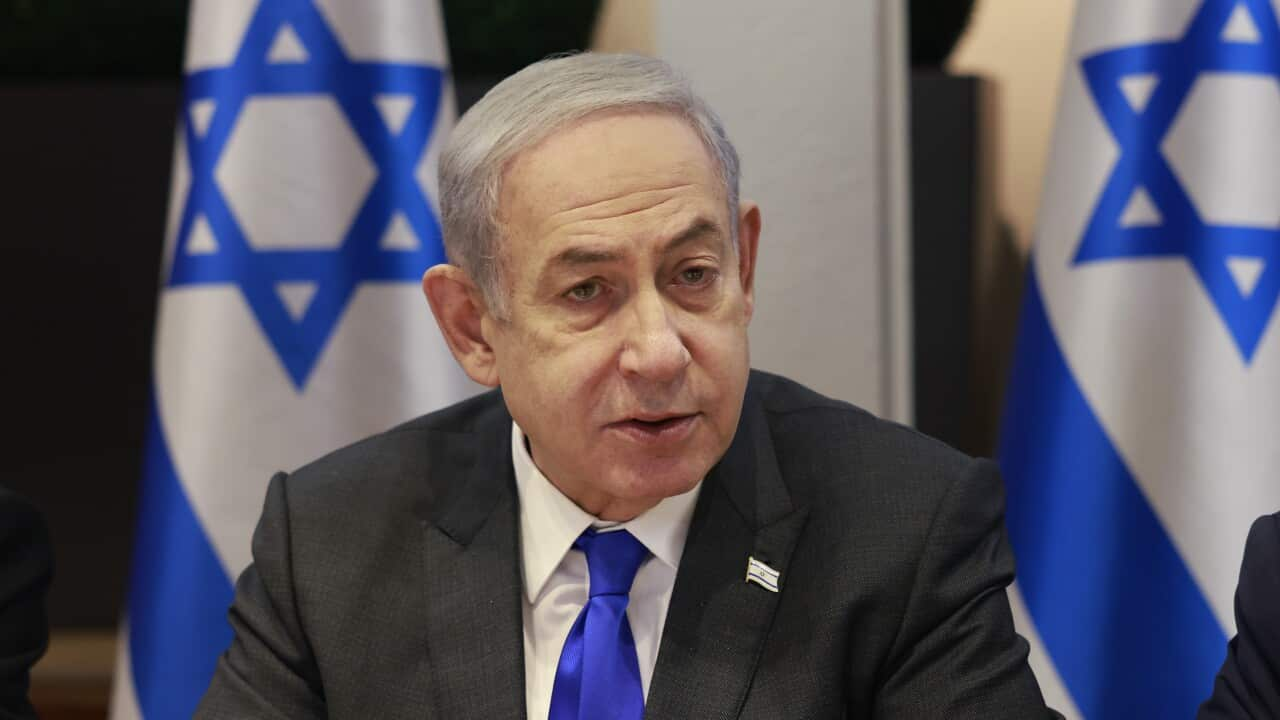Many Israeli officials have celebrated Donald Trump's re-election to the US presidency.
On Tuesday, the president-elect revealed he would nominate former Arkansas governor Mike Huckabee as the new US ambassador to Israel.
Huckabee, an evangelical Christian, is a staunch supporter of Israel and defender of Israeli settlements in the occupied West Bank, considered illegal under international law, including the Geneva Conventions.
"He loves Israel and the people of Israel, and likewise, the people of Israel love him. Mike will work tirelessly to bring about peace in the Middle East!" Trump said in a statement.
Huckabee has previously criticised US President Joe Biden for pressuring Israel to moderate its conduct of the war in the Gaza Strip.
"If a person is pro-Israel, how can you be pro-Biden because the Biden administration has made it very clear they will make concessions to Hamas," he had said in an interview in March on US cable news network News Nation.
Israel's response to Donald Trump's re-election
The response from many members of the Israeli government to Trump's re-election has been celebratory.
Before polls had closed on election day, Israel's national security minister Itamar Ben-Gvir wrote on social media platform X, "Yesssss" with emojis of a bicep and the Israel and US flags.
Speaking later in the Knesset, Ben-Gvir referred to Trump's re-election, saying: "This is the time for sovereignty, this is the time for complete victory."
Following the US election, also wrote on X that Trump's re-election was: "history's greatest comeback".
He congratulated the president-elect, saying his return: "offers a new beginning for America and a powerful recommitment to the great alliance between Israel and America".
In a statement earlier this week, Netanyahu said he had spoken to Trump three times in recent days and that the pair see "eye to eye" on the "Iranian threat".
Israel's President Isaac Herzog also wished Trump on his election victory during his visit to Washington on Tuesday, where he was hosted at the White House by Biden.
He referred to Trump as: "a champion of peace and cooperation and a great friend of Israel".
"In our conversation just a few days ago following his election, we spoke of the urgent need to bring our hostages back home. President Trump reiterated his love for Israel; I thanked him for his friendship and wished him every success," Herzog said in his address to the Jewish Federations' General Assembly in Washington.
Palestinians' response to Trump's victory
Some Palestinians in Gaza have expressed fear at Trump's return to the White House.
In Khan Younis in the southern Gaza Strip, Abu Osama, who has been displaced by unrelenting Israeli bombardments, told Reuters that Trump's victory is a "new catastrophe in the history of the Palestinian people".
More than 43,300 Palestinians have been killed in more than a year of war in Gaza, health authorities in the enclave say, and much of the territory has been laid to waste.
The war between Hamas and Israel is the latest escalation in a long-standing regional conflict and followed the October 7, 2023 attack in which Hamas militants killed 1,200 Israelis and took more than 250 hostages, according to Israeli tallies.
In the occupied West Bank, Palestinian President Mahmoud Abbas, a rival of Hamas, congratulated Trump on his election as US president. He said he would cooperate with the new administration to reach regional peace.
"We will remain steadfast in our commitment to peace, and we are confident that the United States will support, under your leadership, the legitimate aspirations of the Palestinian people," Abbas said in a statement.
Some Palestinians said they saw little difference between former president Trump and vice president Kamala Harris, but felt Trump's recognition of Jerusalem as Israel's capital during his first term demonstrated a stronger bias toward Israel.
Donald Trump's first presidency
During his first presidency from 2017 to 2021, Trump established himself as a staunch ally of Israel.
In 2017, Trump reversed decades of US policy by recognising Jerusalem — a city sacred to Muslims, Jews, and Christians — as the capital of Israel and moving the US embassy there. Thousands of Palestinians took to the streets to protest the decision, which also drew criticism from both the Arab world and Western allies.
Australia, under the Morrison government, recognised West Jerusalem as Israel's capital in late 2018, but did not move its embassy there. .
While Netanyahu hailed Trump's 2017 announcement as a "historic landmark," the decision was criticised by countries including Britain and France. Palestinian president Abbas, meanwhile, said the US had abdicated its role as a mediator in the peace process.
In 2020, the Trump administration mediated , normalising diplomatic relations between Israel, the United Arab Emirates, and Bahrain. However, the agreements did little to advance Palestinian statehood in the West Bank and Gaza.
What will Trump's second presidency bring for Israel?
Trump is expected to continue arming Israel, whose existence he said would have been endangered if Harris had been elected — a claim dismissed by the Biden administration, which has expressed strong support for Israel.
While he has broadly called for an end to the war in Gaza, Trump has yet to clearly outline how his incoming administration might help expedite that process. During the campaign, he also reiterated his stance on Israel, stating he would support what he described as Israel's "right to win its war on terror".
Speaking to SBS News before the US election, Ian Parmeter, a research scholar at the Australian National University's Centre for Arab and Islamic Studies, said Trump would be "a lot more pro-Israeli" than Harris and is likely to give "freer rein to Netanyahu to do what he needs to win the war".
He said Trump's support would also likely extend to Israel's objectives in Lebanon, where , and Israel has directed destructive airstrikes and troop operations.
Jared Mondschein, director of research at the United States Studies Centre, said the celebrations from various Israeli government officials show they are expecting an administration that will "not pressure them to change their course of action".
"I think they're expecting a US administration, including a likely US ambassador to Israel who is supportive of a lot of Israeli settlements and the Israel Defense Forces," he said.
However, Mondschein said there may be a lot of continuity between Biden and Trump's presidencies when it comes to Israel due to bipartisan support for Israel in the US.
According to Brown University's Costs of War project, the US has spent at least US$17.9 billion ($27 billion) on military aid to Israel since October 7, as of 30 September.
Mondschein said one point of difference may be that the Trump administration will place less pressure on Israel over ensuring humanitarian aid enters Gaza, but Trump will also be keen to see an end to Israel's war in the Palestinian enclave.
"I do think there is a likelihood that Trump will put some pressure on Israel to finish their operations in Gaza because the US doesn't see it as helpful to US efforts in the region," he said.
"The US is tired of a bipartisan consensus of the region taking up scarce resourcing, scarce attention from the United States, and so that's why I think, ironically, Trump may be the sort of president to put pressure on Israel to — maybe not focus on humanitarian aspects — but just focus on getting out of Gaza," Mondschein said.
He said neither Trump, Biden, nor Harris: "wants to see US blood or more resources spent on the Middle East, and they're really just hoping that it just is not an area they will need to focus on".
Throughout his presidential campaign, Trump promised to bring peace in the Middle East. During his debate with Harris, the former president said he would "get that settled and fast", referring to the conflict.
However, Trump has so far been unclear on how he plans to bring an end to war in the Middle East, telling Netanyahu "Do what you need to do" while speaking with the Israeli prime minister about his offensives against Hamas and Hezbollah in October, according to a Washington Post report.
— With additional reporting from the Australian Associated Press and Reuters.














